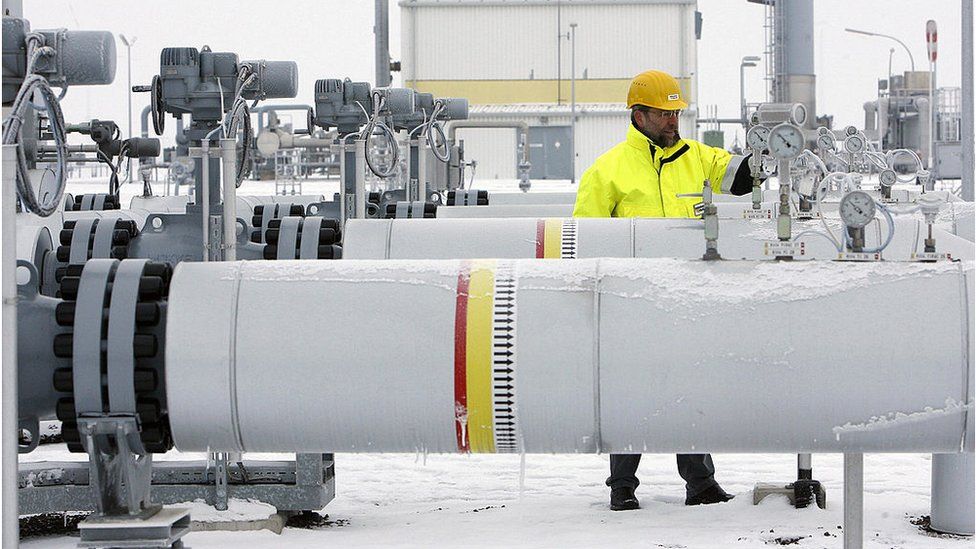Russia has told "unfriendly" foreign countries they must start paying for gas in roubles or it will cut supplies, BBC reported.
Vladimir Putin has signed a decree stating buyers "must open rouble accounts in Russian banks" from Friday.
"Nobody sells us anything for free, and we are not going to do charity either - that is, existing contracts will be stopped," the Russian president said.
Mr Putin's demand is being seen as an attempt to boost the rouble, which has been hit by Western sanctions.
His decree means foreign buyers of Russian gas would have to open an account at Russia's Gazprombank and transfer euros or US dollars into it.
Gazprombank would then convert this into roubles which will then be used to make the payment for gas, according to BBC.
Though the order comes into effect for gas exported from Friday onwards, the payments for that gas will not be paid by European buyers until mid-May, Dr Jack Sharples, a research fellow at the Oxford Institute for Energy Studies told the BBC.
That suggests there may not be an immediate threat to supplies.
Mr Putin said the switch to roubles was meant to strengthen Russia's sovereignty, and it would stick to its obligations on all contracts, if Western nations obliged.
Germany said the change announced by Mr Putin amounted to "blackmail".
Since Russia invaded Ukraine, Western nations have issued economic and trading sanctions on Russia, but the European Union has not placed bans on oil or gas, unlike the US and Canada, as its member nations rely heavily on it.
The EU gets about 40% of its gas and 30% of its oil from Russia, and has no easy substitutes if supplies are disrupted. Meanwhile, Russia currently gets €400m (£340m) per day from gas sales to the bloc and it has no way of rerouting this supply to other markets, BBC reported.
For the Kremlin this is designed to suggest a dramatic escalation in the economic battle between the West and Russia over the invasion of Ukraine.
Vladimir Putin has outlined a pathway for the cutting of gas supplies to Europe if Western customers refuse to pay for supplies in the Russian currency the rouble.
However, the market reaction suggests the details of the mechanism mean that, in practice, European customers will just have to change their currency dealers to Gazprombank. That bank has already been left unsanctioned, for the purpose of continuity of energy trade.
As a result, gas prices remain very high, but did not today shoot into the stratosphere. There should be a workaround.
As one leading analyst told me, this solution has "saved face" for Putin, who can sound tough on domestic TV. Ultimately, as Russian officials have repeatedly said for decades, Russian supply of energy to the West continued uninterrupted even during the height of the Cold War.
Ultimately, Russia still needs the money for the gas, and still wants to leave the possibility of a market for its main export once a peace deal is signed. However, it is also true to say that the threat of a cut-off has escalated. EU nations have prepared emergency measures to manage demand, and would be more willing to face that now during spring and summer than winter, accident to BBC reported.
The net effect of the mechanism announced is to limit the ability of the West to freeze the revenues they pay to Gazprom, which Putin described as receiving the gas for free.
Some Ukrainian officials have suggested such an approach. Oil and gas dollars and euros continue to help the Kremlin resist an otherwise tough set of financial sanctions.











